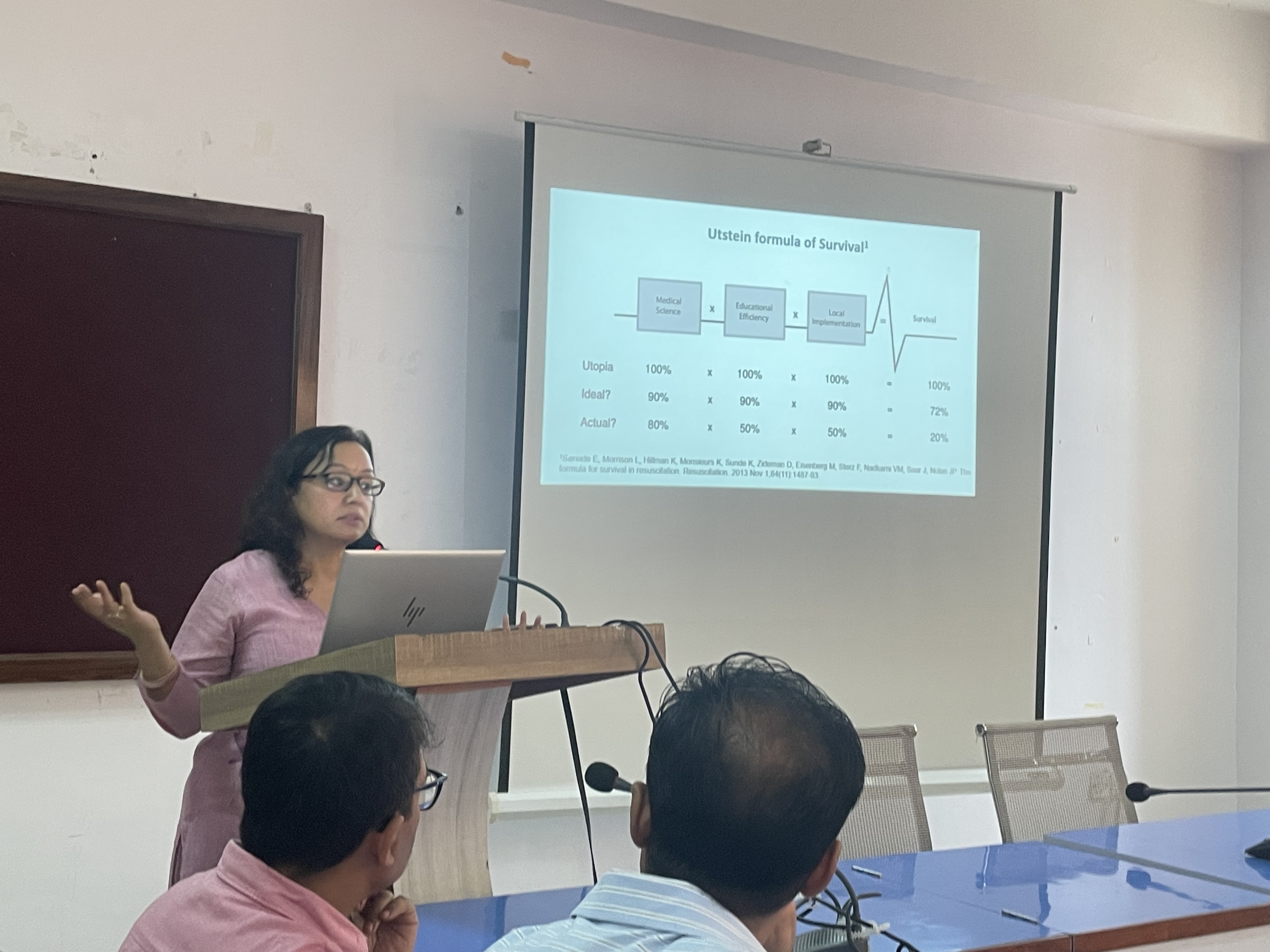Building capacity for improving maternal and newborn care in Nepal


Laerdal Global Health is working under the leadership of the Family Welfare Division with support from UNICEF Nepal in collaboration with the Simulation Society of Nepal to build capacity for improving maternal and newborn care. The program will be implemented in 10 facilities across the Lumbini and Sudurpaschim provinces supporting more than 30,000 births every year.
At UNICEF, we’re looking forward to the program approach which addresses the urgent need to improve the quality of maternal and newborn care. We are happy to work under the overall leadership of the Family Welfare Division and collaborate with Laerdal Global Health and the Simulation Society of Nepal in this initiative. We’re hopeful to have developed successful implementation models for simulation-based quality improvement, ultimately impacting maternal and newborn care.

The program aims to establish cost-effective, simulation-based capacity building in health facilities and provide technical support across various levels of the healthcare system. It will enhance the quality improvement processes by utilizing the Safer Births Bundle of Care approach, which focuses on key practices to promote better maternal and newborn outcomes. Additionally, the program will strengthen Maternal and Perinatal Death Surveillance and Response implementation, and use innovations such as Bempu, a device that monitors a newborn's temperature to prevent hypothermia. Training data will be used to guide and inform quality improvement efforts throughout the program.
We have significantly improved access to healthcare with 80% of births attended by skilled health providers, but still, the quality of care is concerning, and newborn and maternal mortality are stagnant. This highlights the need to strengthen the quality of care and efforts to adopt innovative techniques like simulation-based approaches, the Safer Births Bundle of Care, Bempu, non-pneumatic anti-shock garments (NASG), and using training data to guide quality improvement.
On October 21, 2024, an orientation for the program, “Strengthening Competency and Quality Improvement in Maternal and Newborn Care” was conducted in the Lumbini province. This event marked the formal beginning of the program's implementation in the Lumbini province. In addition, a needs assessment was conducted at the facilities to identify training needs, training systems, infrastructure, and quality improvement areas. This will help tailor the program's design and implementation to address these needs. UNICEF distributed equipment for the simulation corners, including manikins and clinical tools. This was followed by an orientation for healthcare providers on the simulators and how to use their features.
The program was attended by key stakeholders, including representatives from the National Health Training Centre, the Ministry of Health and Population, and the Provincial Health Directorate, Health Training Centre, Lumbini Province. Participants also included representatives from Lumbini Provincial Hospital, Kapilvastu Hospital, Arghakhanchi Hospital, Shivaraj Hospital, and Dhakabang Health Post. Also present were federal and provincial experts from professional associations such as the Midwifery Society of Nepal, Nepal Pediatrics Society, Nepalese Society of Obstetrics and Gynecologists, Perinatal Society of Nepal, Pediatric Nursing Association of Nepal, UNICEF Nepal, and the Simulation Society of Nepal.
A similar orientation in the Sudurpaschim province will take place later this week.
We are thankful to the UNICEF team for providing simulation-based innovations, technical support from Laerdal Global Health and the Simulation Society of Nepal. We are committed to working together to improve the quality of maternal and newborn care. I would like to emphasize the importance of collaborating with government stakeholders to have long-lasting impact and sustainability.